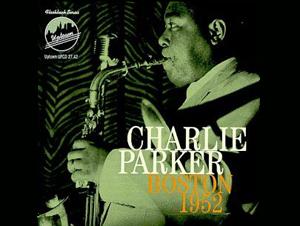The sweet, sweet sounds of a bailout
"What led (German Romantic composer Richard Wagner) into his financial straits were his artisitic ambitions. He wanted to create these operas, and for a while, he was doing very well. But, he had these bad habits. He liked to spend a lot of money, he liked to chase other men’s wives, he borrowed money from creditors, he ended up running all over Europe, running from his creditors," tells McKnight.
"In 1864 there was a young king, King Ludwig II of Bavaria. He heard Lohnegrin, the ‘Here Comes the Bride’ thing, he heard that as a young man. A year later, when he became king, he wrote Wagner a letter saying, ‘I’m going to wipe away all of your debts, I’m going to build you a house, I’m going to build you this big opera house to play your music,’ and that is what saved Wagner."
"Charlie Parker’s issue was that he had an accident, had some morphine, and got addicted to heroin." McKnight continues, "He ended up having a nervous breakdown, and spent some time in a hospital, and came out of the hosptial. He was okay for a few years, but fell back into that lifestyle. In the case of Charlie Parker, it was a bunch of folks, the community, that saved him."
McKnight’s third example was that of George Frederich Handel: "He went to Italy and learned opera for about three years, and then he wanted to conquer England. So, he moved to England, and he brought these Italian operas to England with him. He wrote all of these Italian operas that were a hit for a while."
"But then the English grew tired of Italian opera; they wanted to hear something in their own language. But Handel was determined to make a living with Italian opera. At some point, it stopped working for him. And then, the year he was going to retire, 1741, he gets a libretto from a guy name Charles Jennens, and it was the libretto to ‘Messiah.’ Handel composed ‘Messiah,’ took it to Dublin, and it was a hit."
"The Takeaway" is PRI’s new national morning news program, delivering the news and analysis you need to catch up, start your day, and prepare for what’s ahead. The show is a co-production of WNYC and PRI, in editorial collaboration with the BBC, The New York Times Radio, and WGBH.
More at thetakeaway.org
